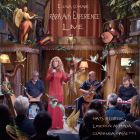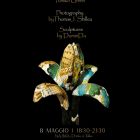Breaking British stereotypes.
This year, the British Council celebrates its 60th anniversary in Italy, and while it is assessing its changing role over the years, the organisation is about to experience transition of a different kind: the lease on its premises in the 16th-century Palazzo del Drago in the heart of Rome runs out* in 2006, marking the end of an era.
Question: What is the British Council? a) An office to help Brits abroad in distress; b) A board that sanctions new words for the Oxford English dictionary; c) British bureaucrats who drink tea together at five? Answer: none of the above, and it is exactly these stereotypes that the British Council is trying to overcome not just about itself as an organisation but about Britain in general.
The British Council promotes and diffuses British culture abroad. This sounds elusive but is actually very practical. The organisation is not aimed at serving its compatriots who live, work or study away from home but foreigners foreign to British culture that is. From Rome to Rio de Janeiro, from Kuala Lumpur to Beijing, the organisation currently has offices in 220 cities in 110 countries. In Italy there are centres in Rome (headquarters), Naples, Milan and Bologna.
But why is it necessary to promote British culture abroad? In short, stereotypes abound, and Italy is no exception. The present director for Italy, Paul Docherty, says that for a country considered to be one of the more sophisticated in Europe, Italy still has an old-fashioned view of Britain in many respects: When I go into a travel agency, the brochures about the United Kingdom are still covered with images of red double-decker buses and Buckingham Palace guards with beefeater hats.
Fish-and-chip loving, tea-at-five drinking and politely behaving, the Brits may well be but not solely. The aim is to promote an up-to-date image of Britain, for though there are elements of truth in stereotypes, what was valid in 1945 is not necessarily so 60 years on. Multiculturalism is a case in point and it is one of the biggest changes Britain has seen over the past 60 years in 2005, a tourists first glimpse of the UK could well be an encounter with a Sikh immigration officer at Heathrow airport.
But how to go about promoting British culture abroad? For 60 years language teaching and training have been a big part of what the Council does, but there is much more to the organisation than its language section. There is also an information department which gives practical advice about the UK from studying in Britain to how to go about finding work. It would be a good idea for an Italian doctor wishing to transfer to Britain to visit the organisation for advice. The science section is also concerned with spreading information. In the run-up to the referendum on assisted fertility in Italy on 12 and 13 June, the Council helped organise a seminar last month with Suzy Leather, president of the human fertilisation and embryology authority of the UK, together with Italian journalists and scientists. The aim was to give an insight into the situation in Britain and highlight issues common to both countries.
Promoting the British arts in Italy is another activity of the Council. Literary events are popular and have also played a part in highlighting multicultural Britain, since many of the UKs most prominent contemporary writers are not of Anglo-Saxon origin. Earlier this year, Anglo-Iranian poet Mimi Khalvati was in Milan to discuss her work and Indian-born Salman Rushdie opened this years international literature festival in Rome.
The organisation has also managed to attract world-class names in the visual arts to Italy. This year sees an exhibition of Lucian Freuds work at the Museo Correr in Venice (11 June- 30 Oct) and of Gilbert & George at the Venice Biennale (12 June- 6 Nov).
The emphasis in the music sector is also on the contemporary even though arts director, Brendan Griggs, says that Italian audiences want to see tried and tested names. He says that attitudes are changing, citing the scene in Rome as an example: When I first took up the post 14 years ago, a lot was happening in Milan, but in the last five or six years Rome has also started to become more lively thanks to an active local government, and spaces such as the new music auditorium being receptive to more adventurous projects. In fact, last month there was a collaboration between the London Sinfonetta Orchestra and contemporary dance-music producers, Warp Records, to combine classical and electronic music in the capital.
Even though the Council has not found new premises for when it moves out of its offices in the renaissance palace, its role over the years has been to embrace change, and it certainly doesnt seem to be phased by it now.
British Council, Palazzo del Drago, Via delle Quattro Fontane, 20.
Tel. 0647814218 / 0647814289. www.britishcouncil.org.
* For students of English.
Below are some idiomatic words and phrases from the text above to improve your English. Please write (in English or Italian) to editorial@wantedinrome.com if you have any comments, suggestions or difficulties.
Runs out finishes
Stereotypes oversimplified ideas about a person or thing
To overcome to conquer
Stereotypes abound there are many stereotypes
An up-to-date image a current image
The run-up to the period just before
To give an insight to give more information
World-class names internationally-known names
To be phased by to be worried by
















